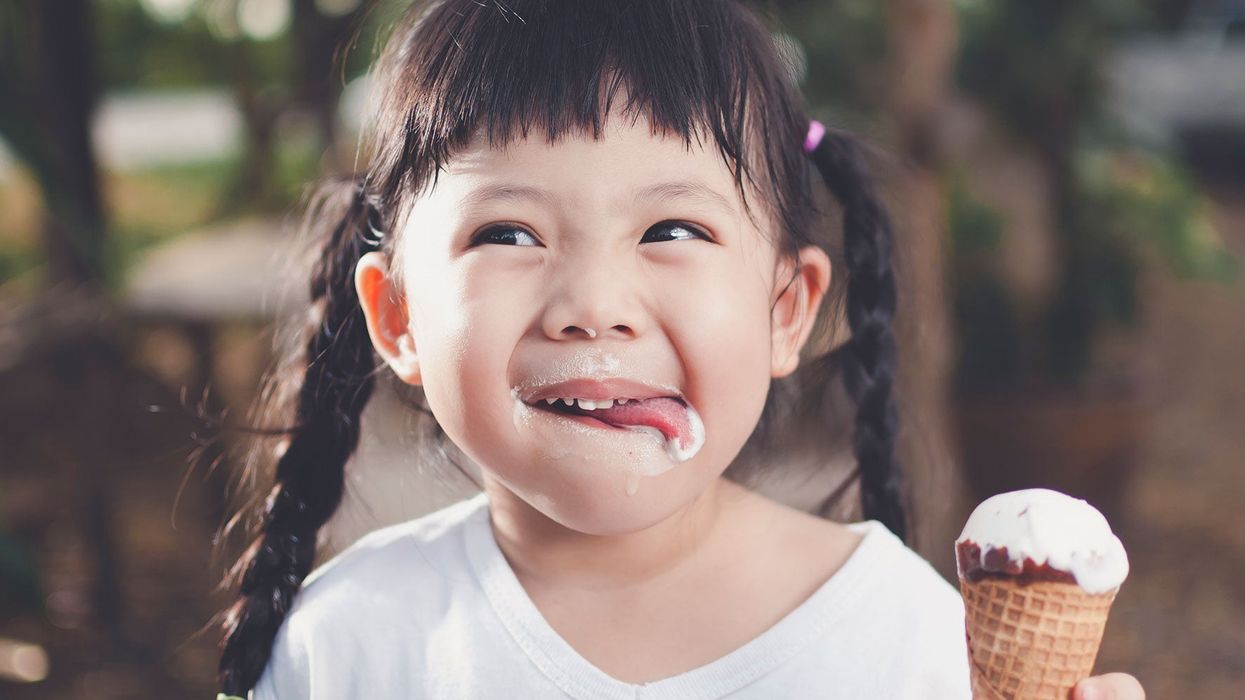News
Mimi Laudner
Apr 28, 2018

Picture:
iStock / Golfcuk
Childhood is envied for its bliss - a blank slate where your life is worry-free, you can shrug your shoulders at what others think and not even think twice about how you look. Research has decisively proven this is not true.
And it has now been claimed that adults fretting about body image is poisoning kids - from parents who obsess over diets, looks-focused make-up and fashion internet games targeted at little girls, and a children's media that is more body-obsessed than you might think.
Though body image issues peak in early adolescence, alarmingly children as young as three worry about being fat or ugly according to a childcare charity survey of professionals. But there is hope for change coming from the very people who can effect it: Dove has partnered with Cartoon Network’s Steven Universe to tackle issues such as appearance-related bullying and self-esteem using animation.
Dr Phillippa Diedrichs, body image expert from the Centre of Appearance at the University of West England, thinks that companies who are influential in children's media leading the conversation is key, explaining that children's media is a driving factor in what seems like an epidemic in low body image.
She told indy100 that children's media is "saturated with appearance ideals" and that research suggest this has just gotten worse since the 1960s.
For example, characters that are meant to be evil or disliked or stupid or lazy are much more likely to be depicted with higher body weights, or to have a large nose, or in some cases to have some kind of disfigurement.
Whereas characters for women who are very thin and male characters who are very lean and muscular are more likely to be in roles where they are not only more attractive and successful, but they also have more pro-social behaviours, so do things that are more attractive or helpful to others.
No wonder then that research reveals that more than half of girls do not have high body confidence, leading them to avoid spending time with friends and family, putting their health at risk and opt-out of important life events. This affects boys' worlds too, though not as severely, said Dr Diedrichs:
The research consistently shows that a significant proportion of children have body issue concerns, with estimates ranging from - depending from whether you’re talking about boys or girls - 40 to 70 per cent, and sometimes for girls even higher than that.
Researchers call this 'normative discontent'. Dr Diedrichs explained:
It’s now more normal than not for young people and young adults to be unhappy and dissatisfied with their bodies.
If anyone was in doubt about the seriousness of the issue, Dr Diedrichs points out that low body image increases the risk of unhealthy eating behaviour, as well as over or under-engaging in physical activity, substance abuse, eating unhealthy foods, low social and educational achievement and aspiration, anxiety and depression... The list goes on, affecting "all key areas of children's lives". In Dr Diedrichs' words:
The evidence clearly shows that it’s not something that’s trivial, that it has a big impact, particularly for girls when we know that there are so many pressures for girls, when it comes to self-objectification and gender equality, when it comes to an issue that makes it difficult for girls to share an opinion and put their hand up in the classroom.
I think it’s difficult for people to dismiss this as a trivial issue and that they’ll grow out of it. The evidence actually shows that they won’t grow out of it.
This is an issue that affects children and adults across the lifespan. And we don’t grow out or graduate from body image concerns.
Who is guilty? Well, pretty much everyone. Messages are perpetuated by peers, family, parents, schools, social media (particularly image-based forums where you compare yourself others) and the mass media. Dr Diedrichs added:
We also have a tendency to compare ourselves to other people, judging where we stand in life, as well as buying into our society’s body ideals also affects body image.
Dove's partnership with Cartoon Network’s is just a step in the right direction, but Dr Diedrichs is confident more will come, whether that be media literacy programmes in schools or parents realising how exactly to talk to kids about body image.
She tells indy100 that trying to focus on what children and our bodies allow us to do rather than just how they look can really help.
Focusing on the functional aspects of our bodies can be a really great way of promoting positive body image.
And that a healthy body image is not just surface-deep:
It’s not just being satisfied and happy away with the way you look. It’s really about appreciating and respecting your body.
As a result, people who do this are much more likely to take good care of themselves.
There’s a pay-off to promoting body image too.
Top 100
The Conversation (0)
x













